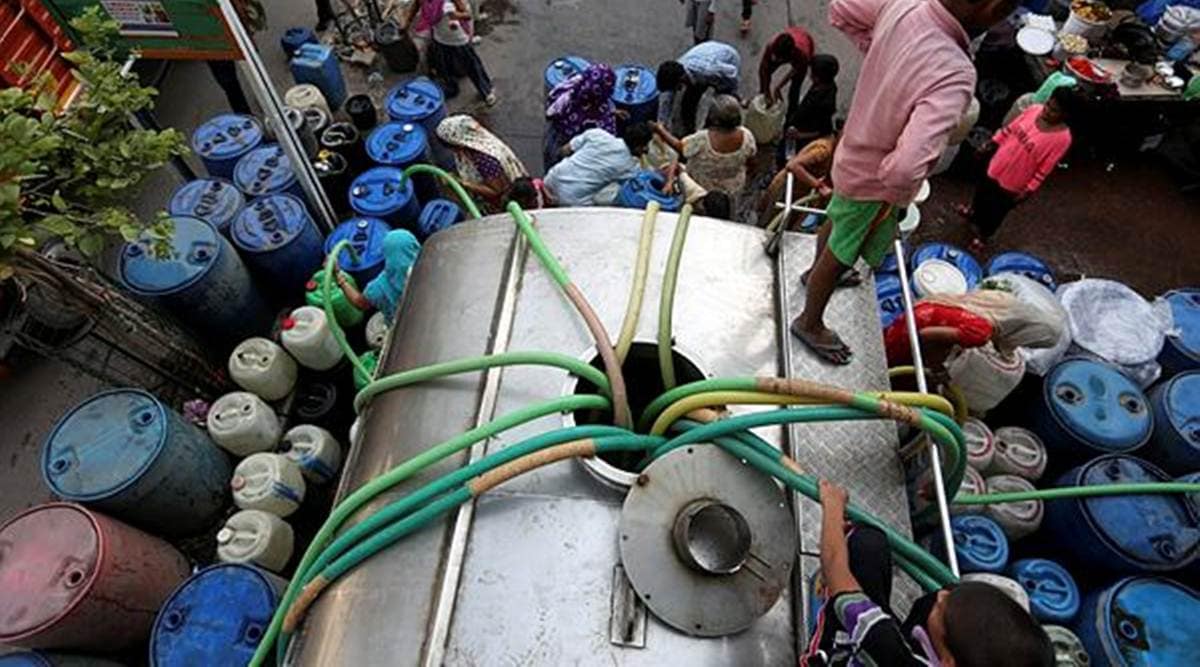 The DJB has 117 primary underground reservoirs where water is stored.
The DJB has 117 primary underground reservoirs where water is stored. The Delhi Jal Board has kickstarted the process to extend round-the-clock water supply to parts of East and Northeast Delhi.
The attempt to provide 24×7 water supply was launched as a pilot project in 2013. Since then, it has only covered parts of Malviya Nagar, Vasant Vihar and Nangloi. This project is now being extended to cover East and Northeast Delhi on a similar PPP model and the process to tender the work has begun. But the private firm that will take up work in East and Northeast Delhi will also have to operate and maintain the sewerage network and provide sewer connections, which was not part of the mandate for agencies running the water supply system in the three areas part of the pilot project.
Increasing the supply of water itself has been a hurdle in extending the project to other areas. A senior Delhi government official said efforts are on to augment supply by extracting more groundwater via tube wells and optimising efficiency of production. The capacity of the water treatment plant at Chandrawal was recently increased from 94 million gallons per day (MDG) to 104 MGD through engineering interventions, the official said.
Attempts are also being made to reduce transmission losses by installing flow meters that can help track leakages and theft. Around 3,000 such meters have been installed so far.
In East and Northeast zones, the private agency will take charge of water distribution — maintain pipelines, install meters, set up customer care centres, check leakages, bill and collect revenue. The DJB will be responsible for providing adequate water, the official said.
District-metered areas will have to be made, which will hive off the existing distribution network into closed-loop sections that will be monitored separately for consumption and losses. The loop will also remain pressurised at all times, and consumers will not have to install booster pumps, the official added.
As per the official, the private agency being brought in to manage the distribution network will not affect prices for consumers.
The DJB has 117 primary underground reservoirs where water is stored after treatment, and 400-500 secondary underground reservoirs from where it is distributed. From the primary underground reservoir onwards, the system will be handled by the private firm, though the assets, including the reservoirs, will remain with the DJB.
Since the existing network is large, bringing in a private firm to maintain it could help prevent delays in services, and improve accountability and coordination, the official said. The agency will have to improve the supply network and replace pipelines where needed, besides ensuring sewer connections are provided for all households in the zone.
To ensure 24×7 supply, the city has been divided into three zones — East and Northeast, South and Southwest, and West and Northwest. A tender for the project was invited in December and 7-8 bidders have expressed interest, the official said.
The tender document describes the objective of the project as “design, finance, construction, rehabilitation, operation, maintenance & management of water supply and sewerage networks”. It identifies the construction phase as two years and eight months. After that, the agency will have to operate and maintain the system for 15 years. East and Northeast areas currently have over 10 lakh connections.
As per the tender, the project could cost around Rs 458 crore (capital expenditure).
- The Indian Express website has been rated GREEN for its credibility and trustworthiness by Newsguard, a global service that rates news sources for their journalistic standards.

